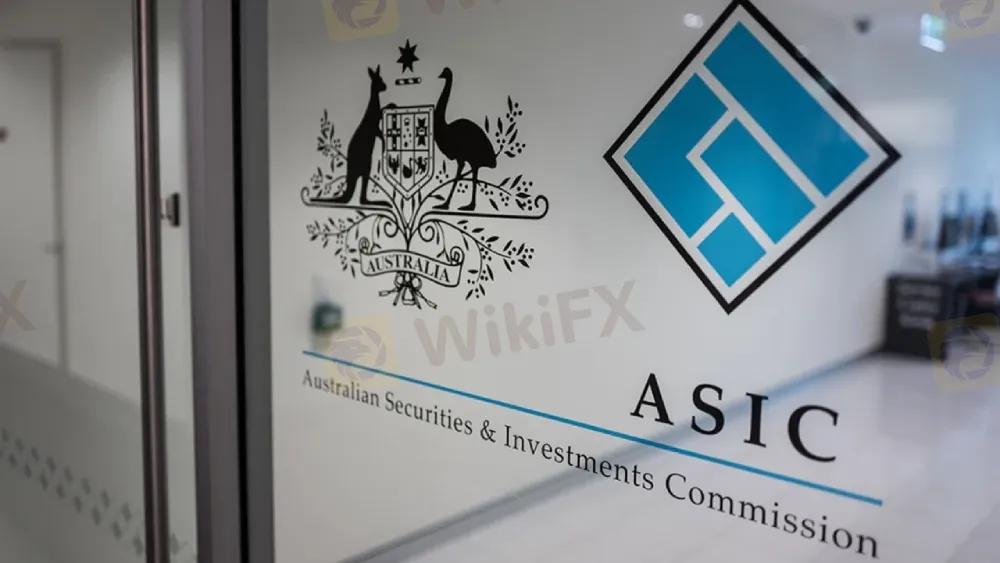简体中文
繁體中文
English
Pусский
日本語
ภาษาไทย
Tiếng Việt
Bahasa Indonesia
Español
हिन्दी
Filippiiniläinen
Français
Deutsch
Português
Türkçe
한국어
العربية
ASIC to Launch New Professional Registers Search System in June
Abstract:ASIC's new Professional Registers Search system launches in June 2024, streamlining access to multiple professional registers with a single search.

Australian Securities and Investments Commission (ASIC) will introduce its new Professional Registers Search (PRS) system in late June 2024, offering a simplified and user-friendly experience for searching professional registers. This effort advances ASIC's goal of being a digitally equipped and data-informed regulator by 2030.
The User-First Approach
The PRS was rigorously 'user-first' developed. The new system integrates different professional registries into one clear interface. Users may look for and check financial services providers, credit licensees, auditors, liquidators, and other licensing statuses in one spot. To make it easier for consumers and companies to identify licensed experts.
Feedback is essential to PRS growth. ASIC's PRS homepage survey will gather user experience data. This input will influence system enhancements to satisfy user demands.
Key Changes and Timeline
ASIC Connect key registers will be included in the PRS's initial release in late June. This includes:
Licensees of Australian Financial Services
Authorized AFS representatives
Licensed credit
Representatives of credit
Official liquidators
Registered corporation and approved audit business auditors
Registered liquidators
Managed investment schemes registered
Authorized SMSF auditors

Note that ASIC Connect's company and business name search registries will not be impacted by this change. A second upgrade in late 2024 will make all professional registration extracts and documents available on the PRS.
Strategic Vision and Digital Transformation
PRS is central to ASIC's digital transformation plan. ASIC hopes to improve its data-driven regulation by giving stakeholders a single, accessible, and simple access point. The new system is safe, sustainable, and scalable, allowing ASIC to enhance its procedures and remain relevant in a changing regulatory environment.
ASIC pursues new technology and digital services to innovate. ASIC hopes to improve financial industry regulation and harm by adopting a digital mentality. The PRS initiative shows ASIC's proactive response to regulatory changes and difficulties to better serve consumers and regulated organizations.
Looking Ahead
The PRS is a major step toward ASIC's efficiency and effectiveness. ASIC is streamlining access to important information and creating a new benchmark for regulatory openness and user experience by merging various professional registrations into a single, user-friendly search engine.
User input and technology advances will shape the PRS's future. Continuous enhancement by ASIC guarantees that the PRS will remain an essential resource for all stakeholders, supporting the regulator's aim to promote a fair and transparent financial market in Australia.
The PRS's debut shows ASIC's commitment to using digital tools and data to improve regulatory compliance and consumer protection. This novel technique is designed to streamline and simplify ASIC's professional registration search procedure for users.
You may also access the latest news in the financial market here.

Disclaimer:
The views in this article only represent the author's personal views, and do not constitute investment advice on this platform. This platform does not guarantee the accuracy, completeness and timeliness of the information in the article, and will not be liable for any loss caused by the use of or reliance on the information in the article.
Read more

Justice Served: Illegal Investment Scheme Ends in RM28 Million Repayment
The Kuala Lumpur High Court has ruled that a Singaporean businessman, Chan Cheh Shin, must return RM28 million to 122 Malaysian investors after the court determined that his investment operations were conducted illegally.

Tokyo Police Arrest 4 for Unregistered FX Trading Scheme
Four men in Tokyo were arrested for running an unregistered FX trading operation, collecting over ¥1.6 billion from 1,500 investors.

Doo Group Expands Its Operations with CySEC License
Doo Financial, part of Doo Group, receives a CySEC license, allowing FX/CFD services in Europe. This strengthens its global presence and regulatory standards.

US Regulators Tighten Oversight on Bank Anti-Money Laundering Efforts
US regulators warn banks of stricter enforcement on money laundering rules, highlighting recent penalties against major lenders like TD Bank.
WikiFX Broker
Latest News
BSP Shuts Down Uno Forex Over Serious AML Violations
ACY Securities Expands Global Footprint with South Africa Acquisition
Why Even the Highly Educated Fall Victim to Investment Scams?
Warning Against Globalmarketsbull & Cryptclubmarket
Rupee gains against Euro
Tokyo Police Arrest 4 for Unregistered FX Trading Scheme
Axi Bids AUD 52M to Acquire Low-Cost Broker SelfWealth, Outbidding Competitor Bell Financial
Crypto Influencer's Body Found Months After Kidnapping
US Regulators Tighten Oversight on Bank Anti-Money Laundering Efforts
Doo Group Expands Its Operations with CySEC License
Currency Calculator


